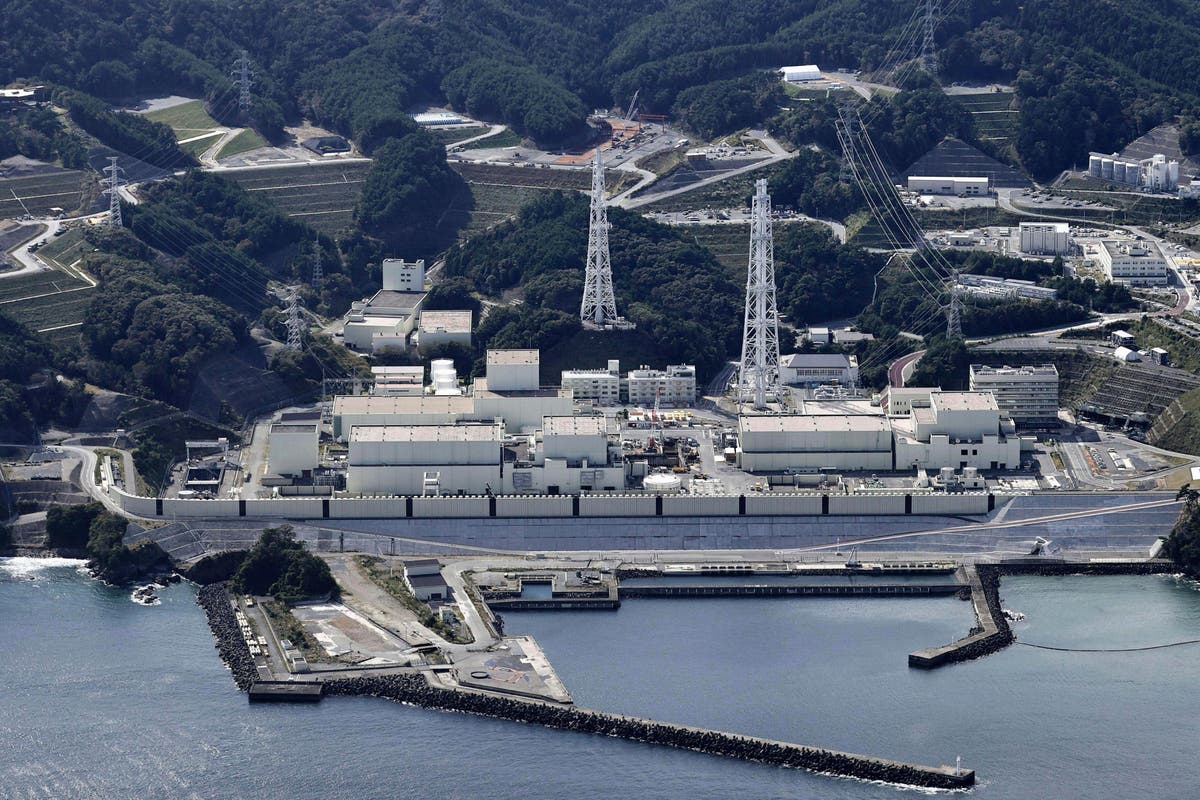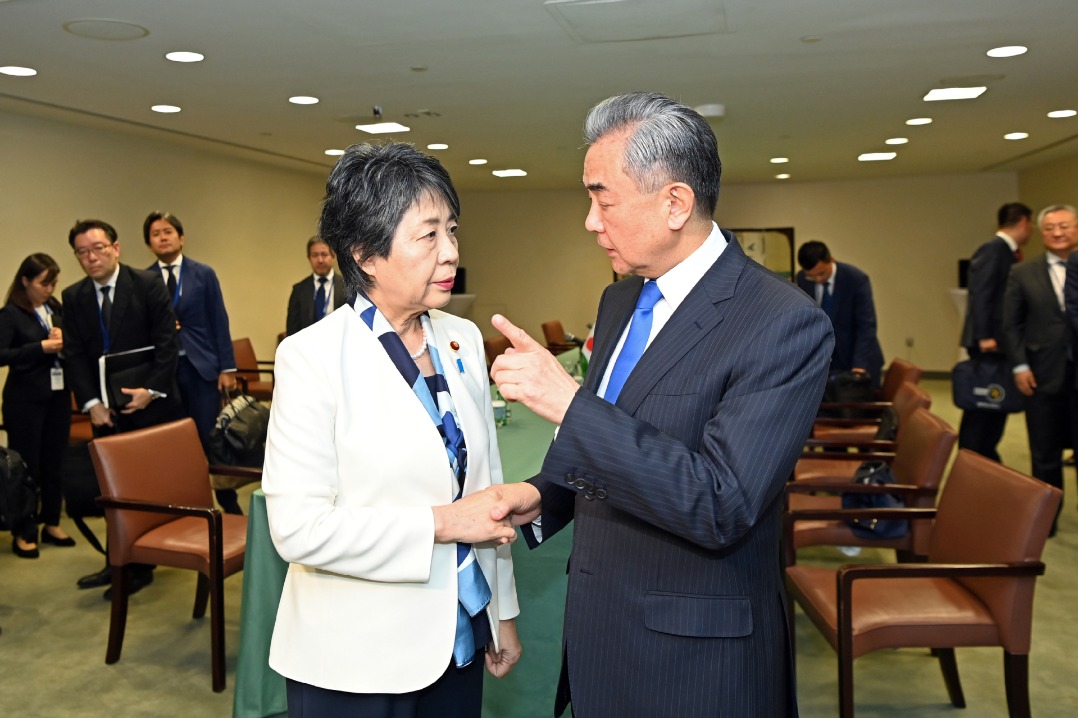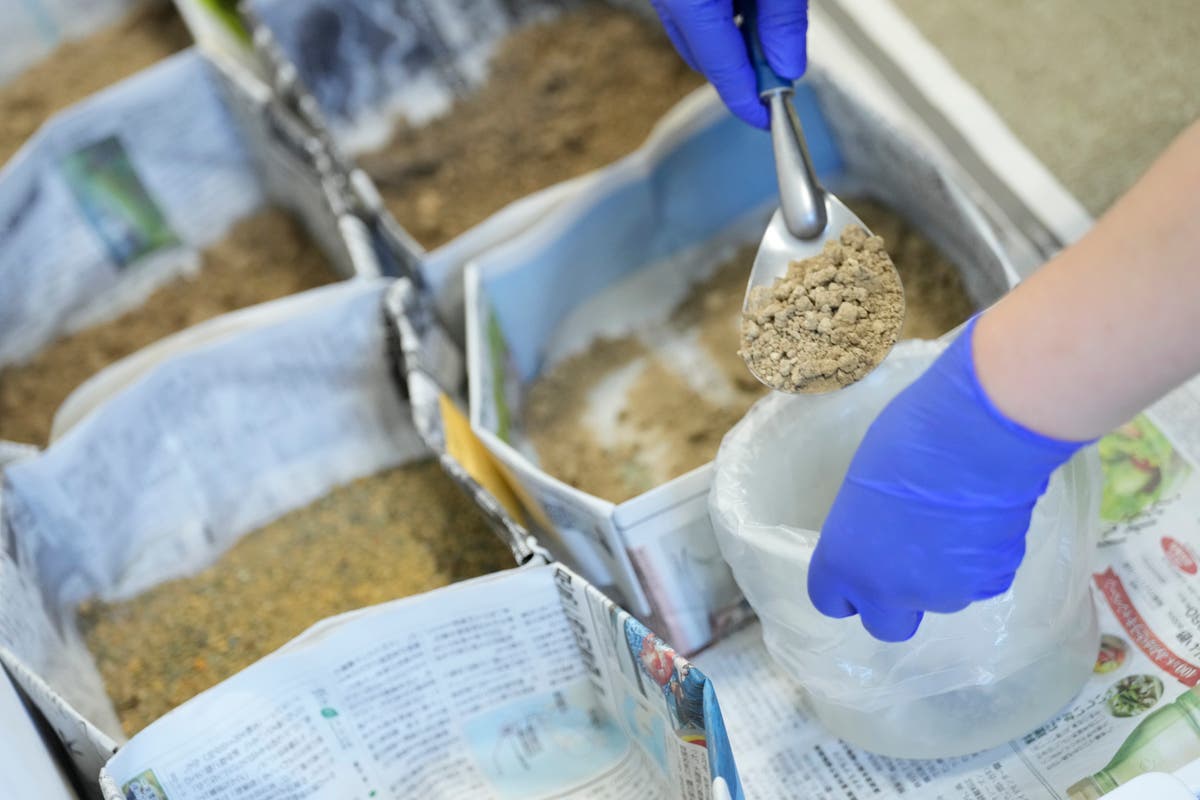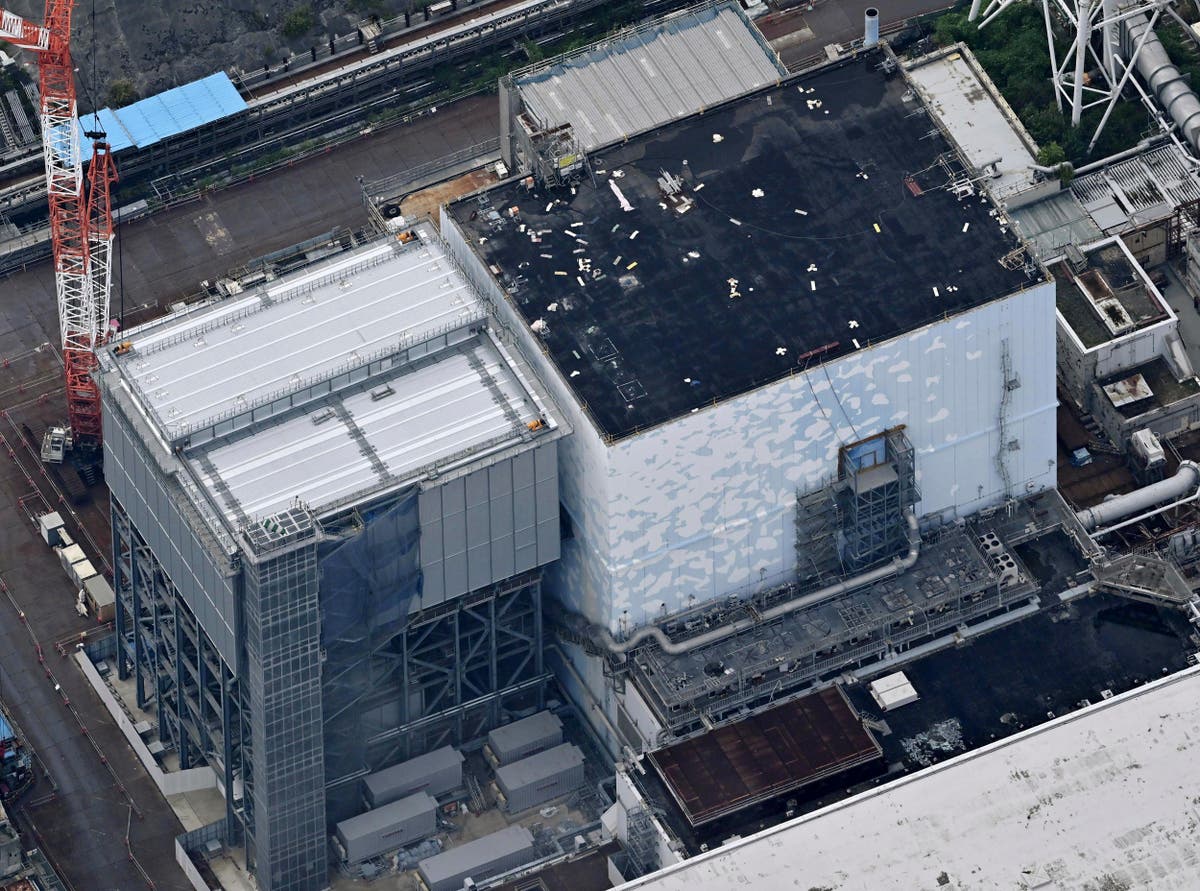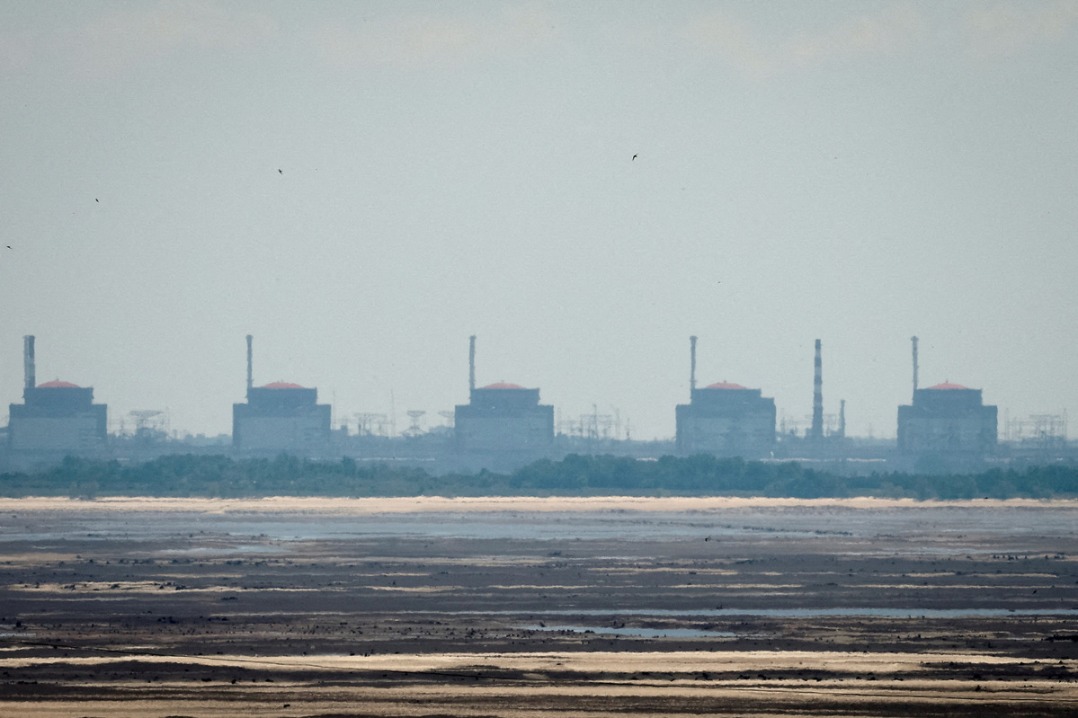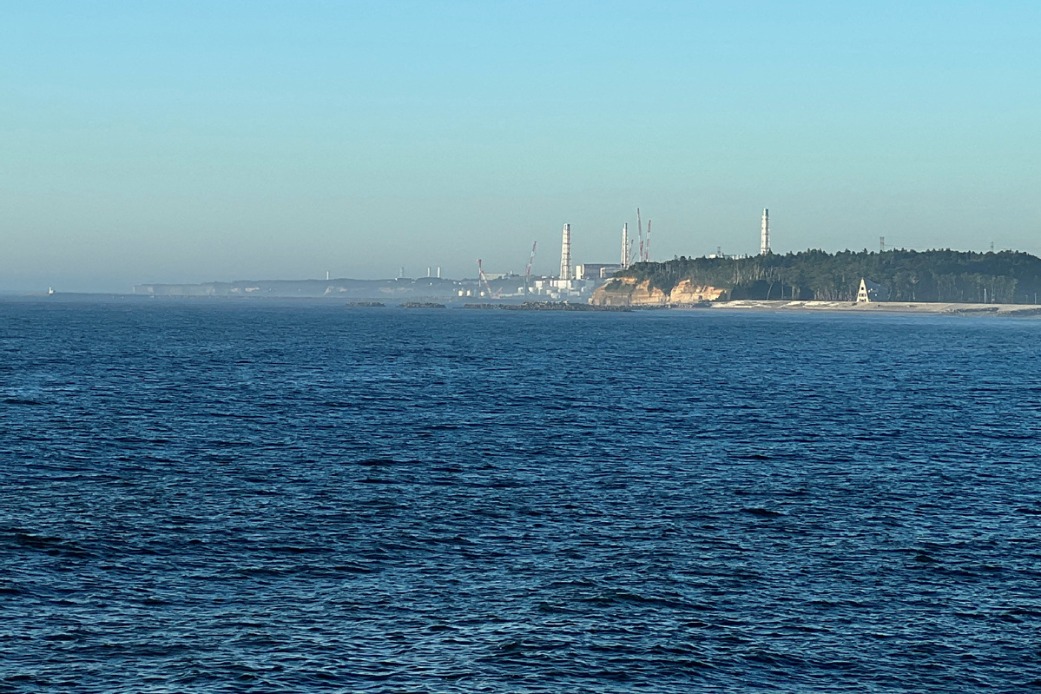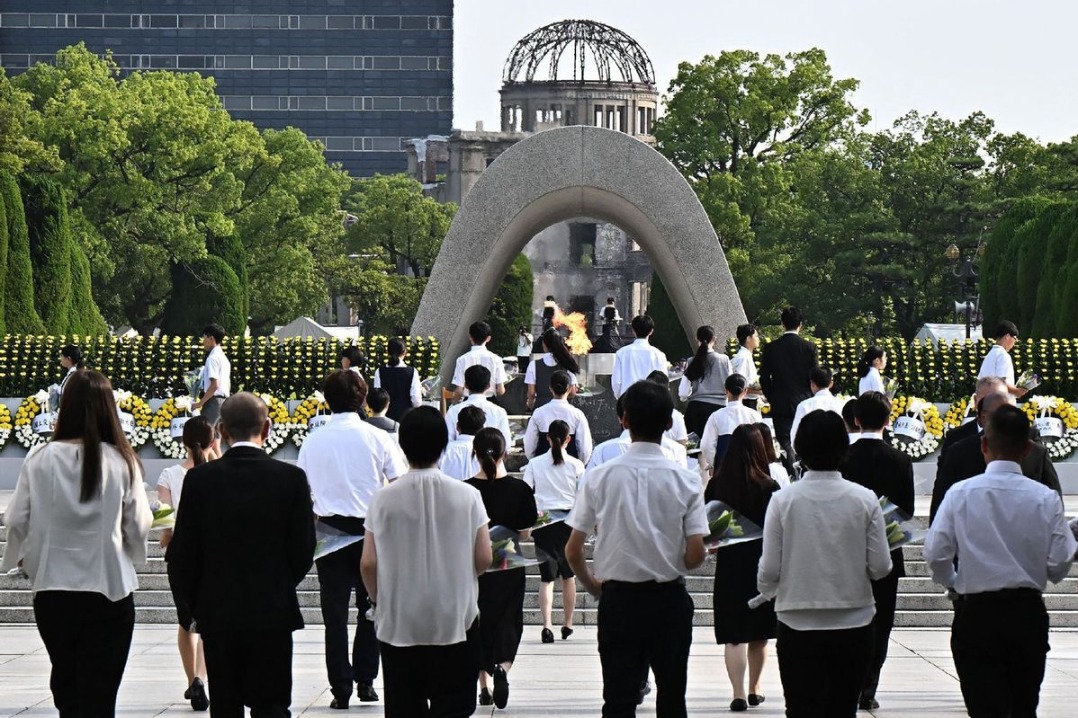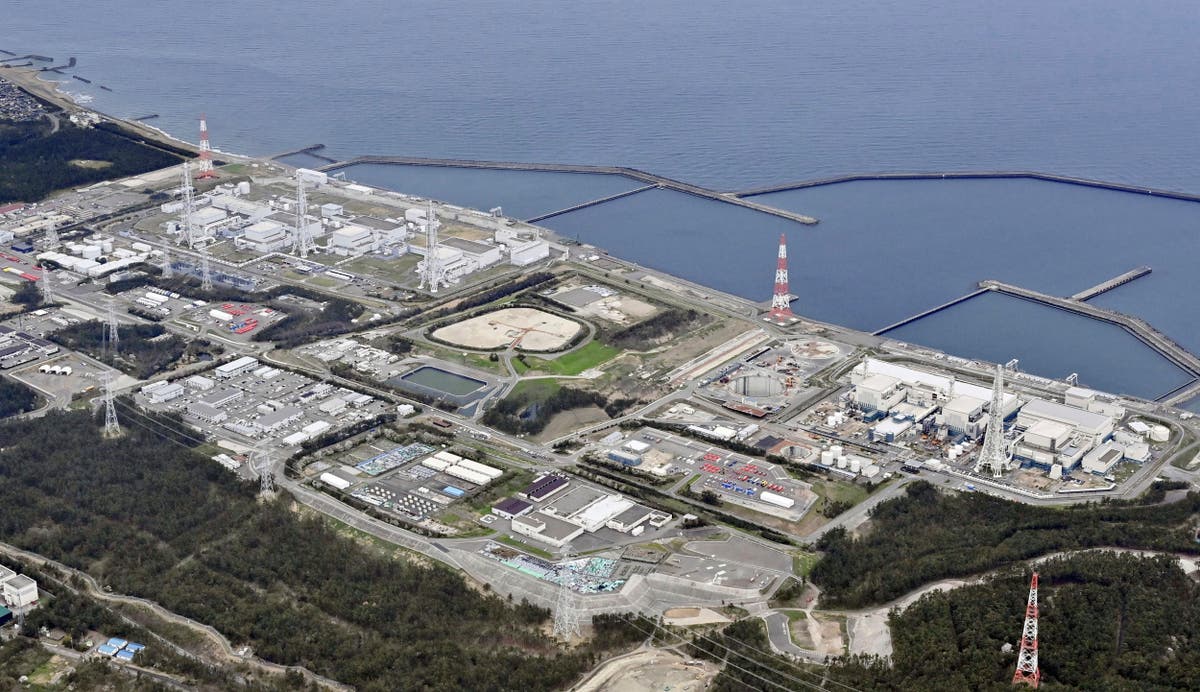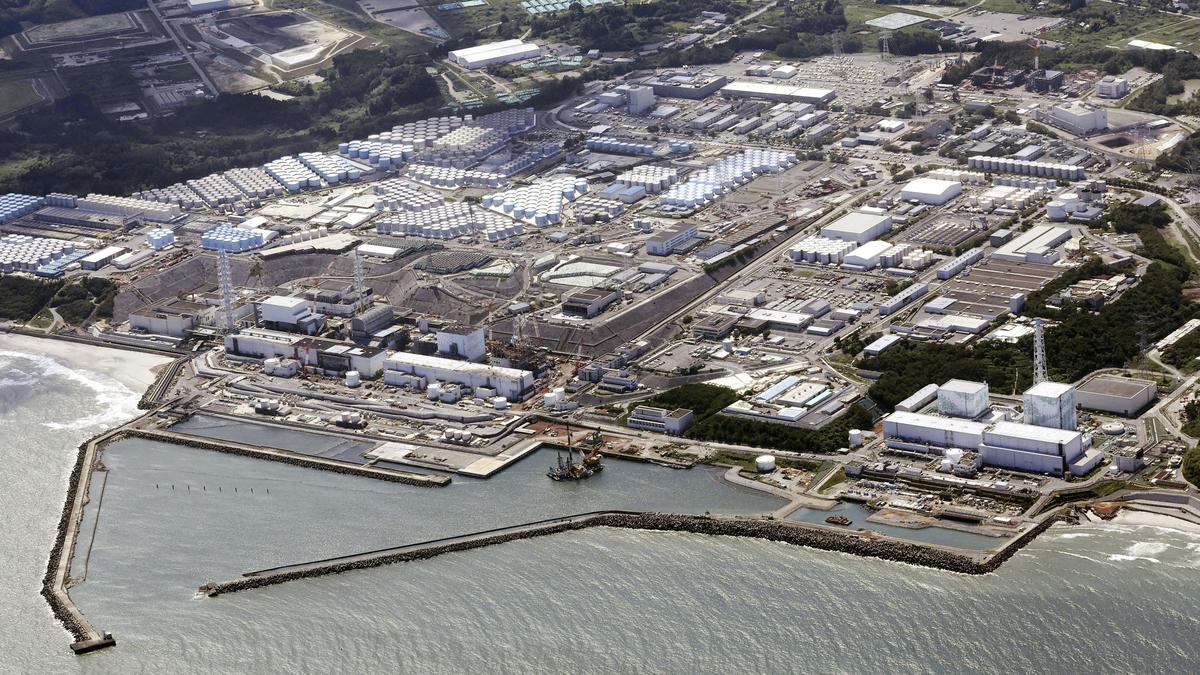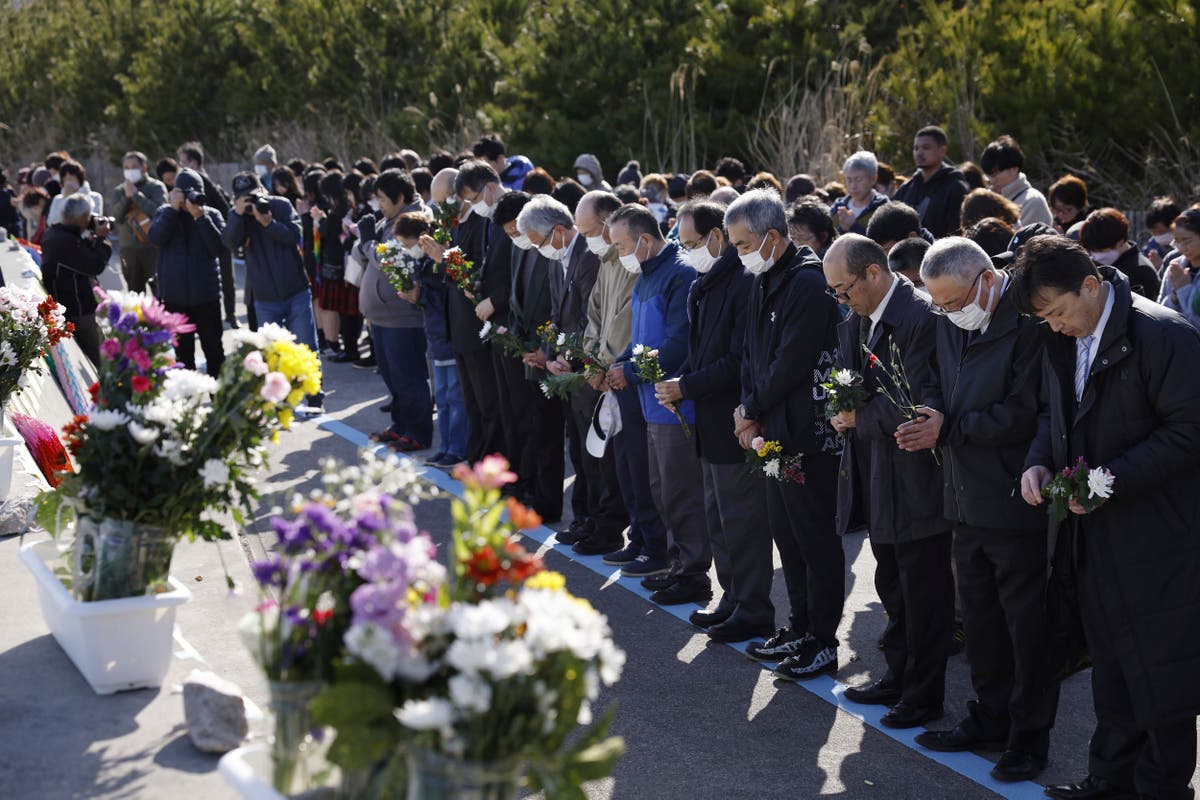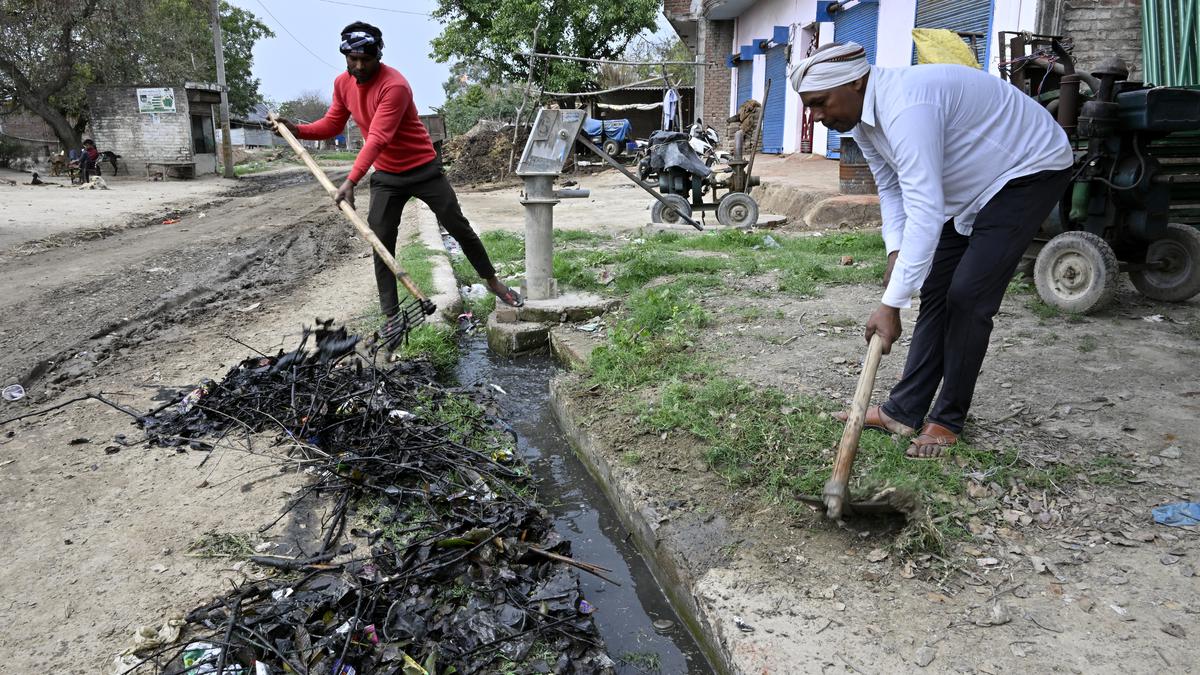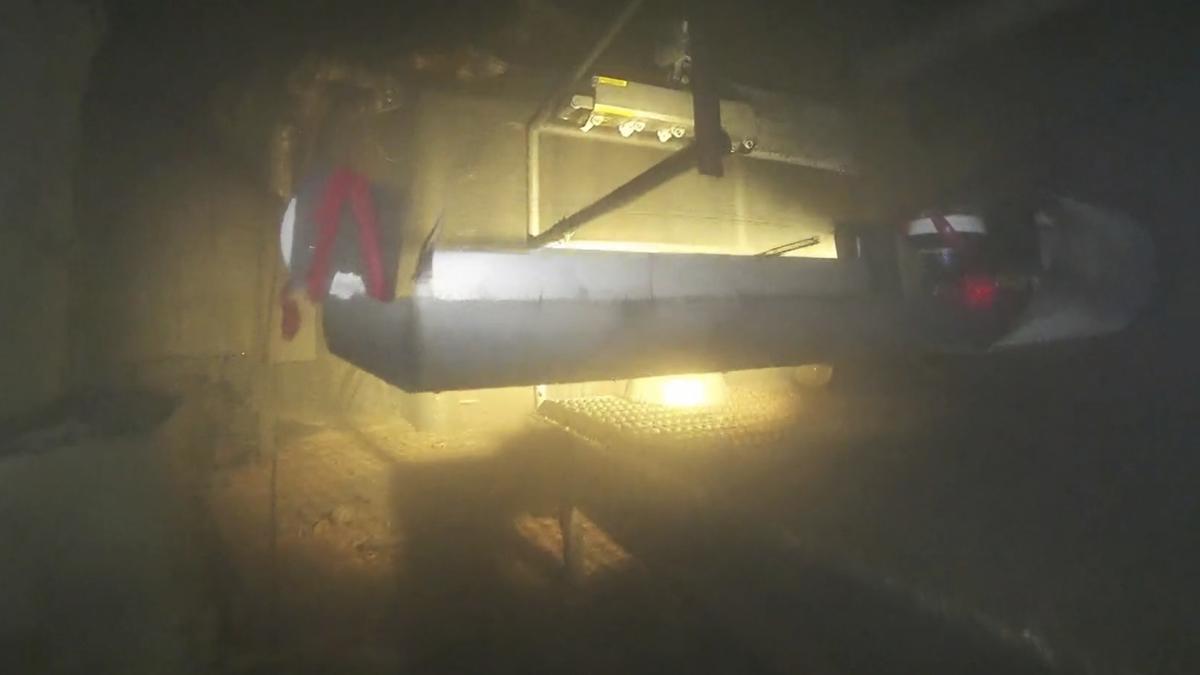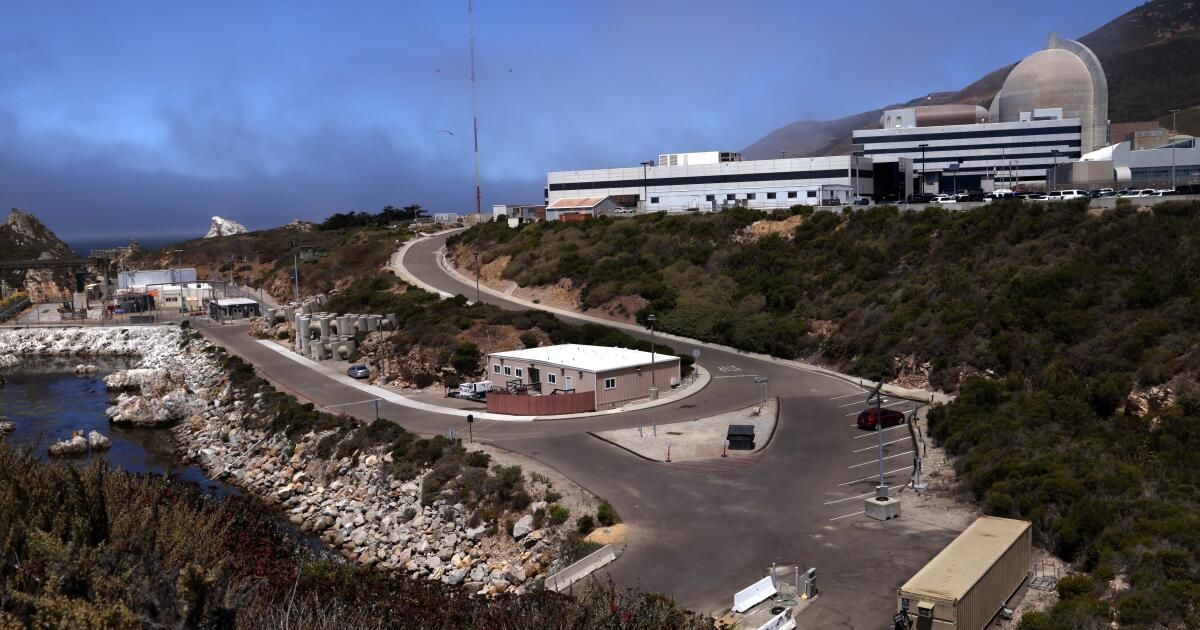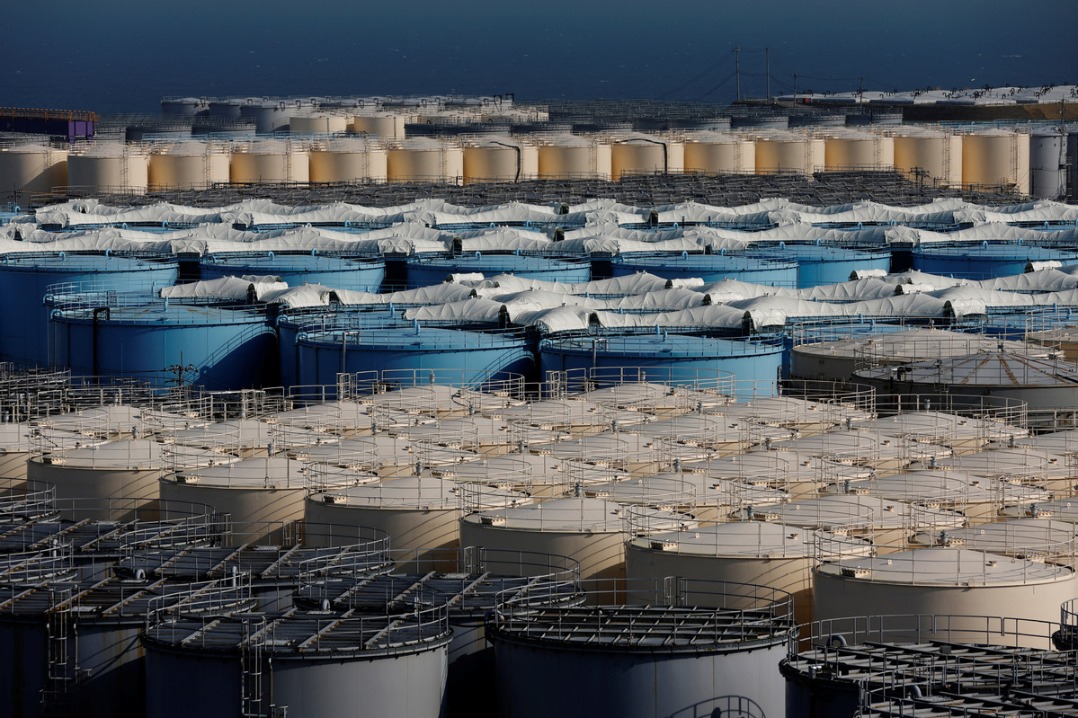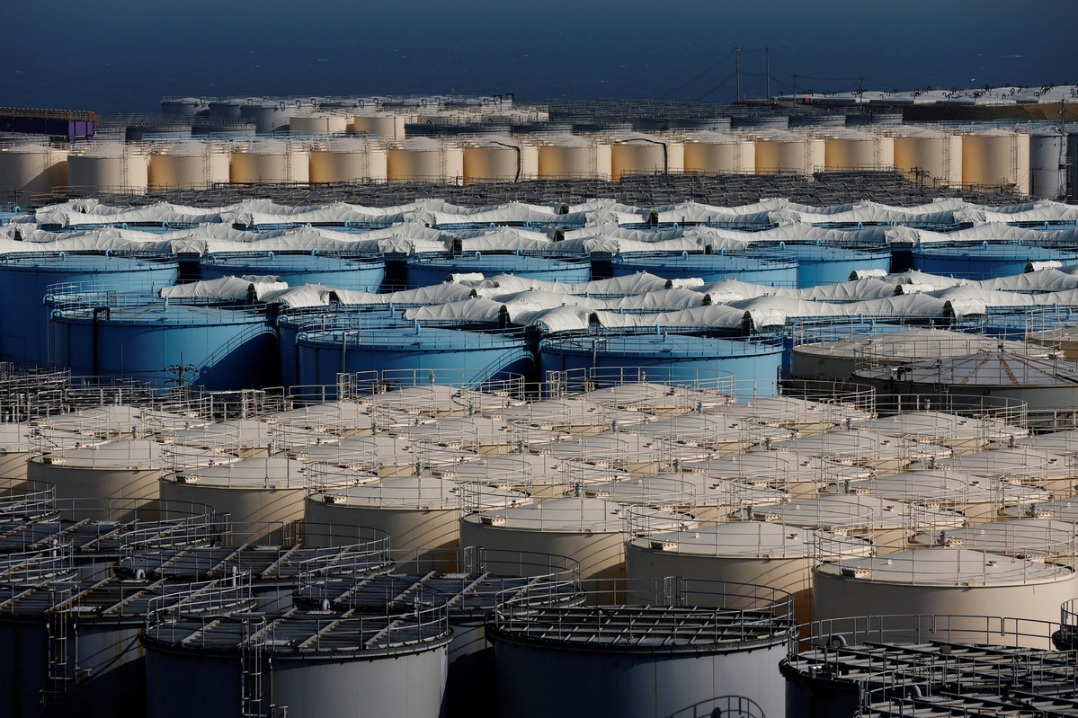UN nuclear agency endorses Japan’s plan to release treated radioactive water into the Pacific Ocean
Associated PressTOKYO — The U.N. nuclear agency gave its endorsement on Tuesday to Japan’s planned release of treated radioactive wastewater into the sea from the damaged Fukushima nuclear plant, saying it meets international standards and its environmental and health impact would be negligible. “We are very confident about it.” The report said IAEA recognizes the discharge “has raised societal, political and environmental concerns, associated with the radiological aspects.” However, it concluded that the water release as currently planned “will have a negligible radiological impact on people and the environment.” Japan’s plan and the equipment for the discharge are “in conformity with the agreed international standards and its application,” Grossi said. He said the dilution of treated but still slightly radioactive wastewater for gradual release into the sea is a proven method widely used in other countries, including China, South Korea, the United States and France, to dispose of water containing certain radionuclides from nuclear plants. Kishida, after meeting with Grossi, said Japan will continue to provide “detailed explanations based on scientific evidence with a high degree of transparency both domestically and internationally.” A massive earthquake and tsunami on March 11, 2011, destroyed the Fukushima Daiichi nuclear plant’s cooling systems, causing three reactors to melt and their cooling water to be contaminated and leak continuously.
History of this topic
IAEA team samples seawater near Fukushima plant to ensure safe release of wastewater
Associated Press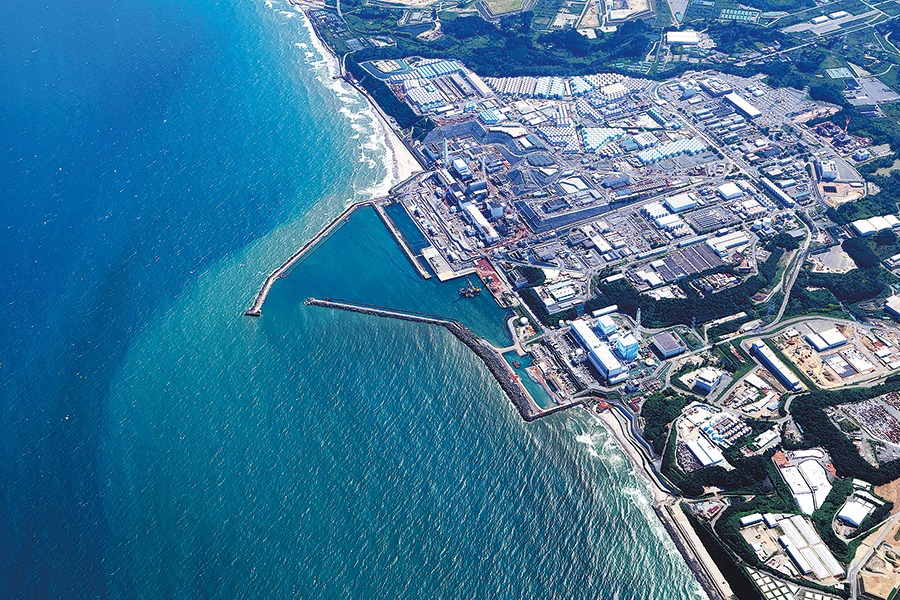
Wastewater calls for caution
China Daily
Wastewater calls for caution
China Daily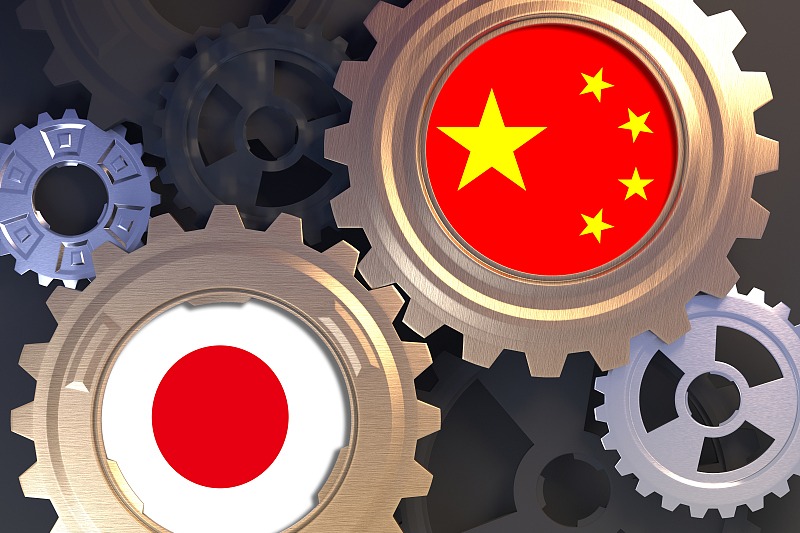
China, Japan reach agreement on sea product trade
China Daily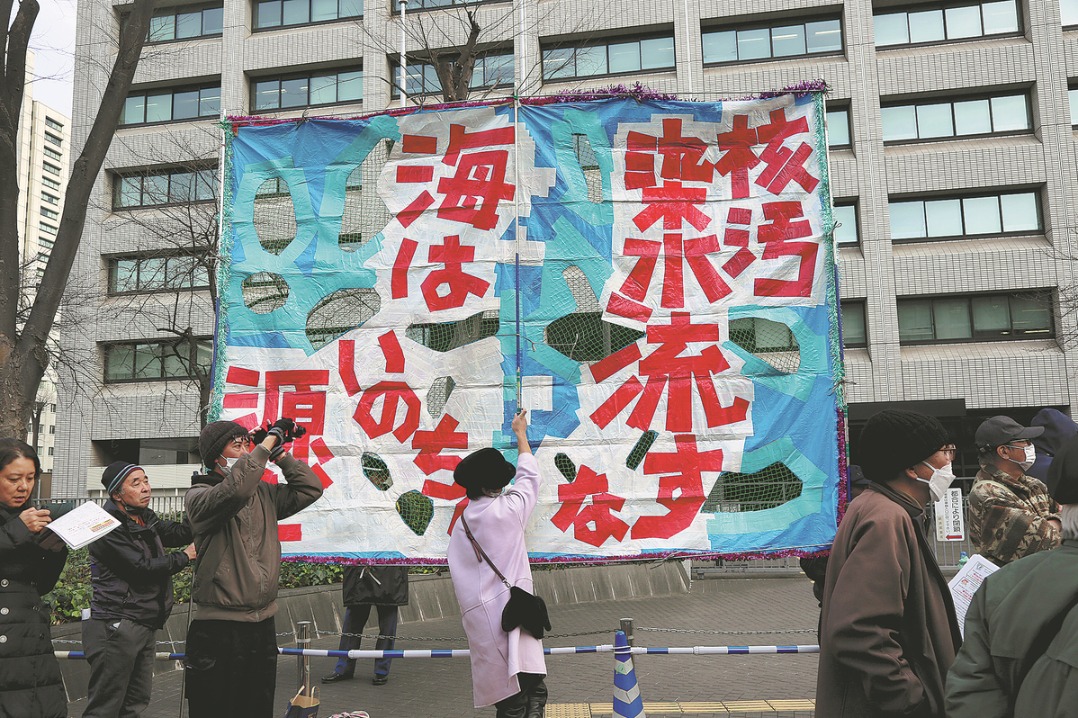
Tokyo not fooling anyone trying to pin blame on rational seafood ban
China Daily
Tokyo not fooling anyone trying to pin blame on rational seafood ban
China Daily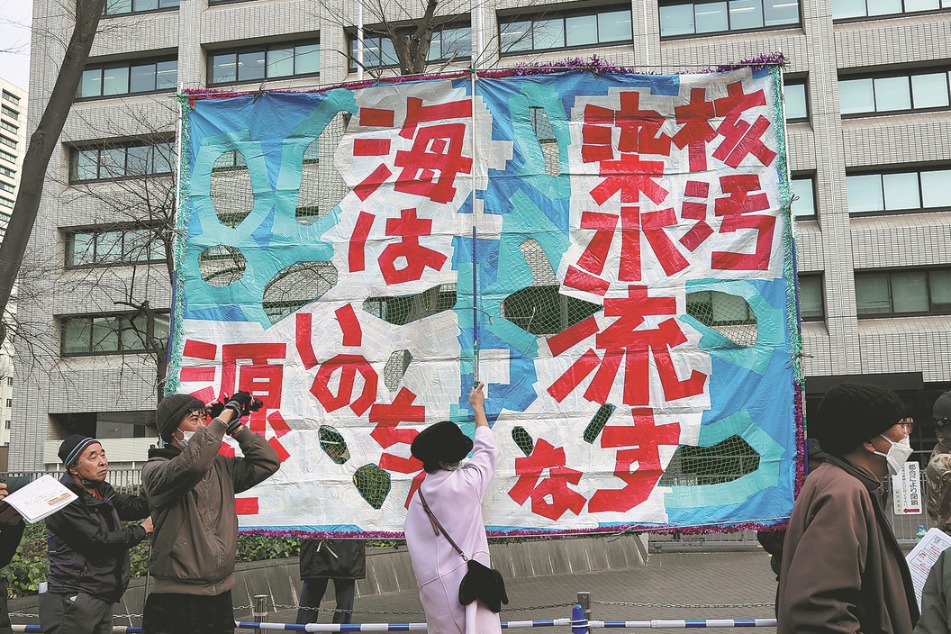
Discharge of nuclear-contaminated water sets bad precedent
China Daily
Japan discharges toxic water despite protests
China DailyIAEA team inspects treated radioactive water release from Japan’s Fukushima nuclear plant
Associated Press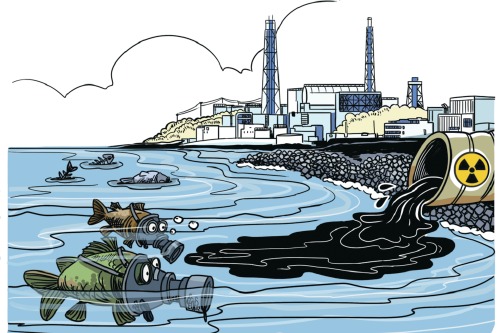
Japan's Fukushima PR stunts fooling no one
China Daily
Transparency is ‘very important’: IAEA chief tells Japan during visit to examine Fukushima wastewater release
The HinduThe treated discharge from Japan’s ruined Fukushima nuclear plant is safe, IAEA chief says on visit
Associated Press
Stronger global monitoring for Japan's toxic water release
China DailyUN nuclear chief tells Japan transparency is ‘very important’ in ruined nuclear plant’s discharges
Associated Press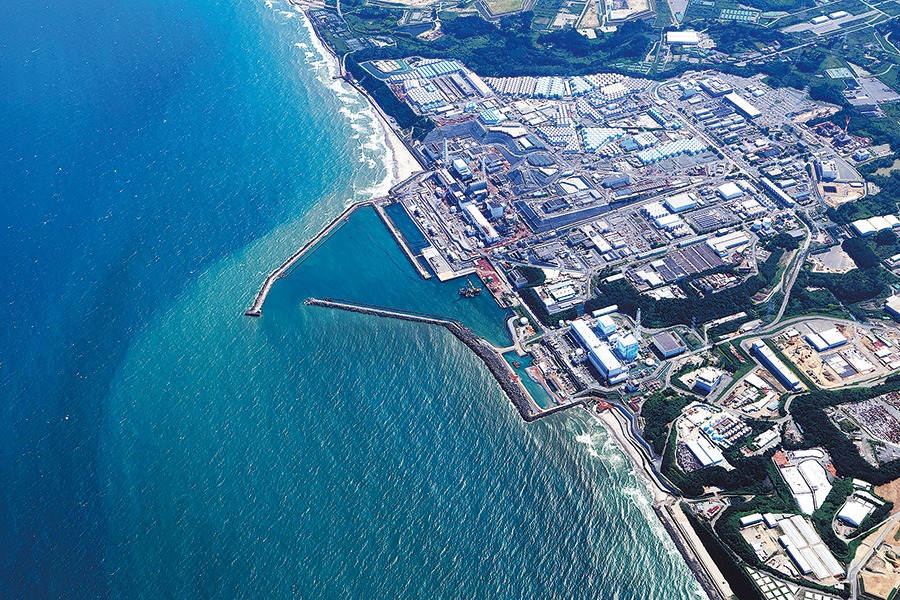
Human errors and subterfuge risk amplifying disaster
China DailyJapan’s industry minister chides utility president over radioactive water leak at Fukushima plant
Associated PressSafety panel urges Fukushima nuclear plant operator to better communicate with the public after leak
Associated Press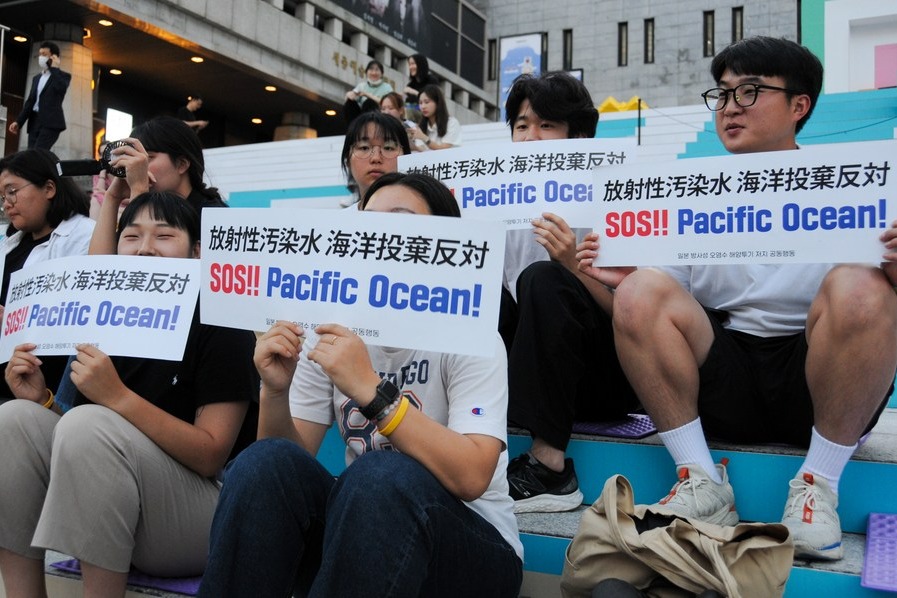
Latest Fukushima leak exposes failures in nuclear crisis management
China DailyIAEA officials say Fukushima’s ongoing discharge of treated radioactive wastewater is going well
Associated Press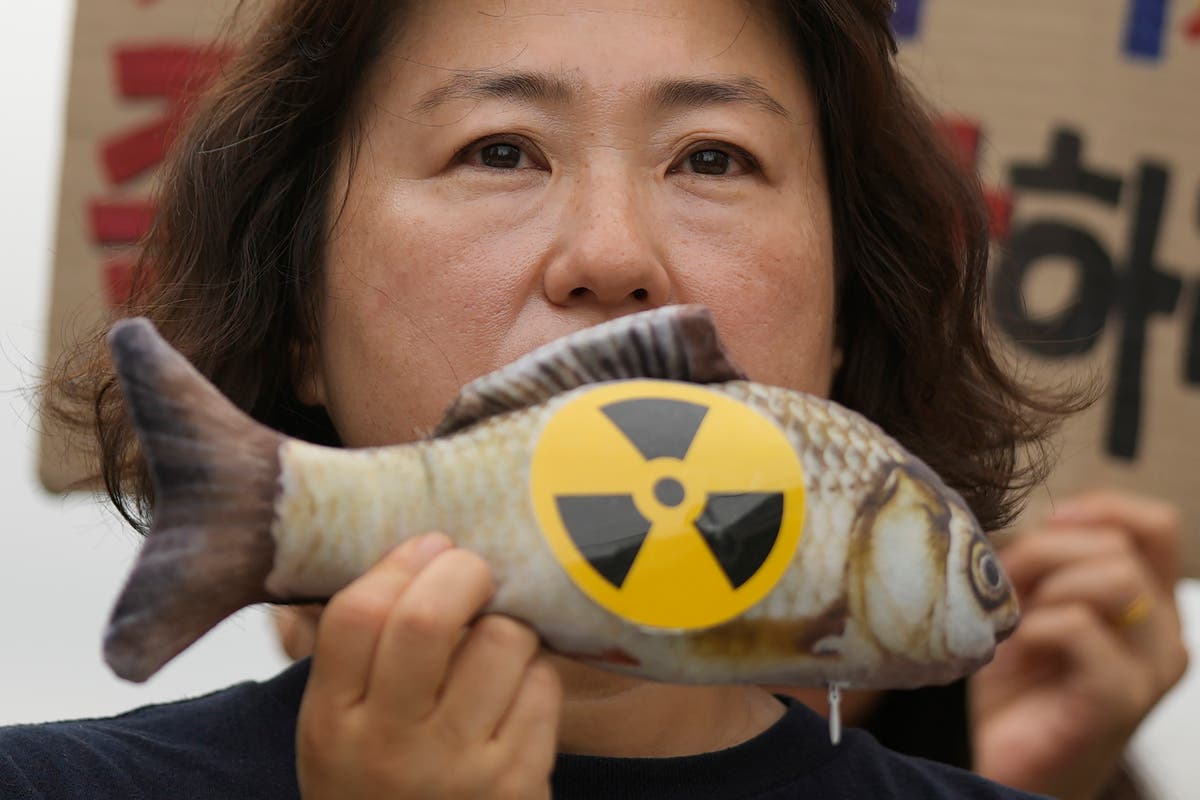
Fukushima fish tested for first time since nuclear plant water release
The Independent
Japan Hits Back At Russia's Concern Over Fukushima Water: 'It's Political'
Huff PostFukushima nuclear plant’s operator says the first round of wastewater release is complete
Associated PressResidents and fishermen file a lawsuit demanding a halt to the release of Fukushima wastewater
Associated Press
Tokyo has sadly thrown caution to the wind
China Daily
Tokyo has sadly thrown caution to the wind
China Daily
Japan: US Envoy Slams China as He Feasts on Fish from Fukushima
News 18U.S. envoy visits Fukushima to eat fish, criticize China’s seafood ban over wastewater release
Associated Press
Japanese ministers eat Fukushima fish to show it's safe after nuclear plant wastewater is discharged
The Independent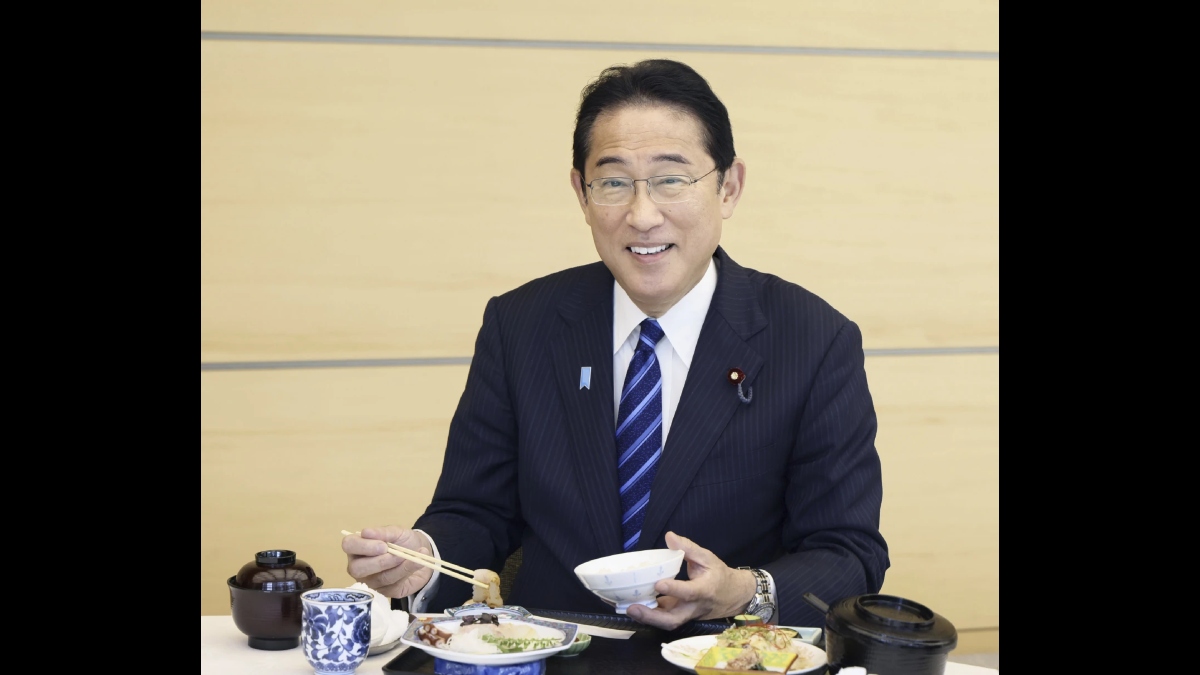
Japan PM eats 'safe and delicious' fish from Fukushima amid controversy over radioactive water discharge
India TV News
How will the Fukushima water release affect the Pacific?
Al Jazeera
Nuclear discharge leading tourists to rethink travel plans
China Daily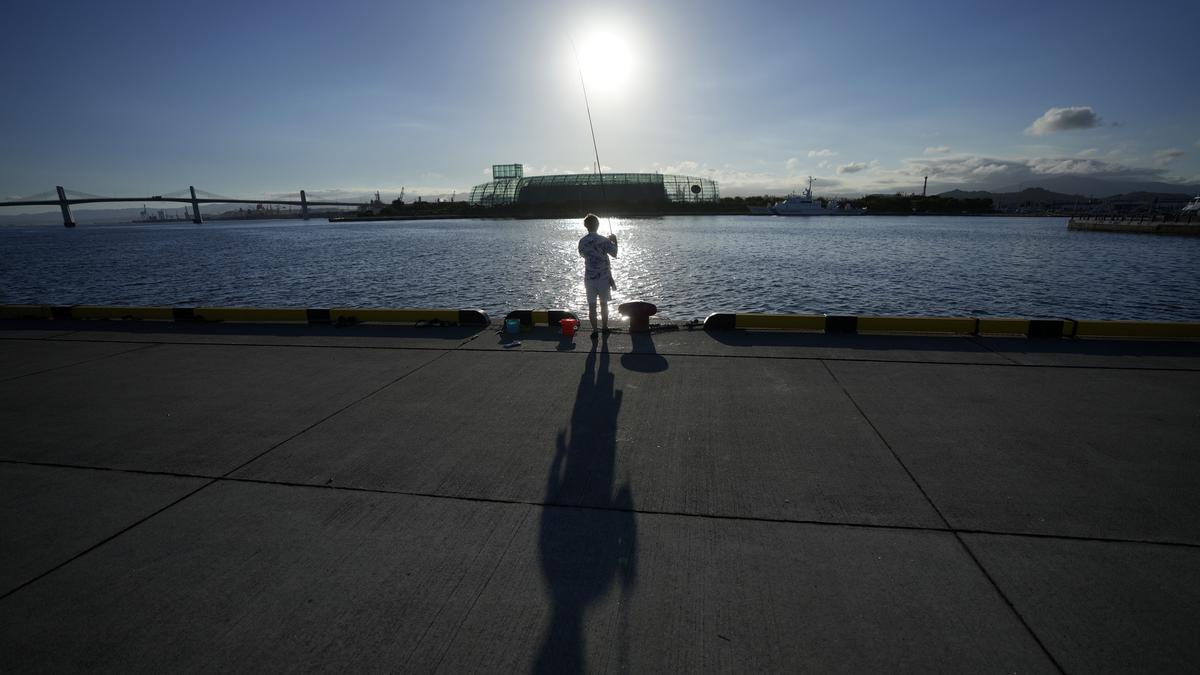
Fukushima residents react cautiously after start of treated water release from wrecked nuclear plant
The Hindu
Japan says no radioactivity found in Fukushima fish: Report
India Today
Japan says no radioactivity found in Fukushima fish
Al JazeeraEvents at Fukushima Daiichi nuclear plant since the 2011 earthquake, tsunami and nuclear disaster
Associated PressJapan releases water from Fukushima nuclear plant, China furious
The Hindu
Japan to release water from Fukushima nuclear plant today amid outcry over risk
India Today
‘Not Japan’s trash bin’: Anger as Fukushima water released into Pacific
Al JazeeraFukushima’s radioactive wastewater is being released in the Pacific. Here’s what you need to know
Associated Press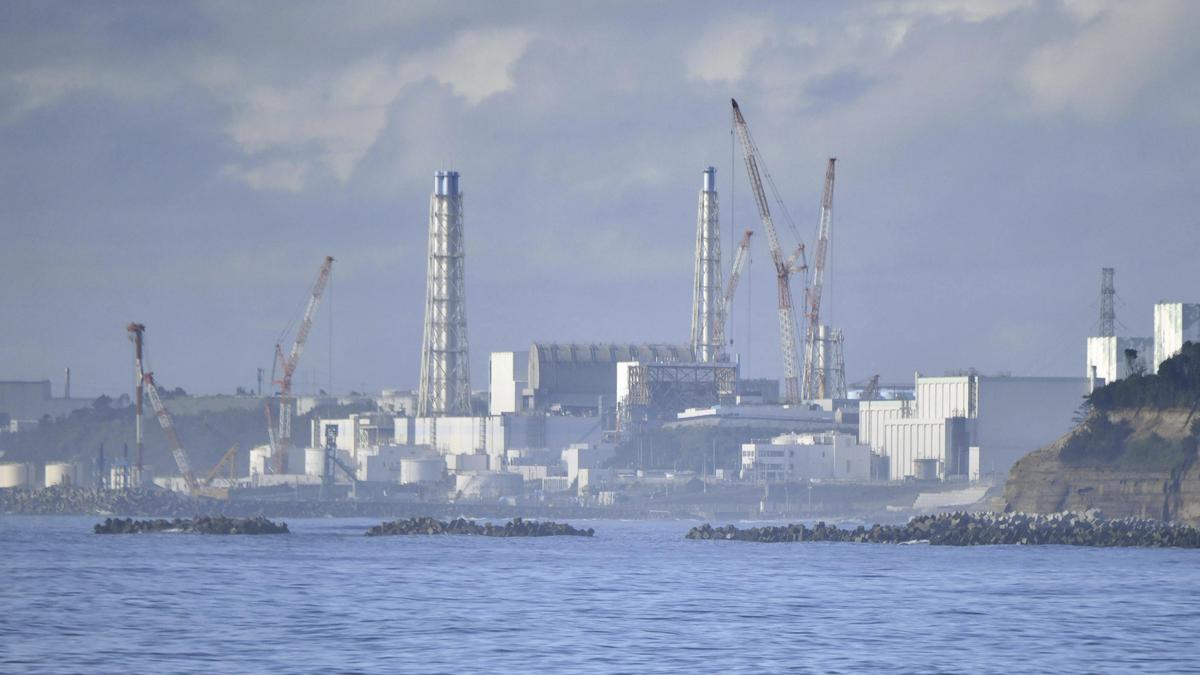
Fukushima nuclear plant will start releasing treated radioactive water to sea as early as August 24
The Hindu
Japan to release radioactive water into sea despite warnings
The Independent
Japan to start releasing Fukushima water from Thursday
Al Jazeera
Fukushima nuclear plant to start releasing treated radioactive water into the sea
LA TimesJapanese government pledges long-term support for fisheries during Fukushima plant water release
Associated Press
South Koreans rally in Seoul against Japanese plans to release treated nuclear wastewater into sea
The Independent
Hundreds rally in S Korea against Fukushima wastewater release plan
Al JazeeraFukushima residents worry nuclear plant’s wastewater release in a few weeks will be another setback
Associated PressAP gets a rare look at Japan’s Fukushima nuclear plant as it prepares to release radioactive water
Associated Press
Japan turns to livestreamed fish in Fukushima safety campaign
Al JazeeraJapan defends neutrality of IAEA report on Fukushima water release plan as minister visits plant
Associated PressDiscover Related



